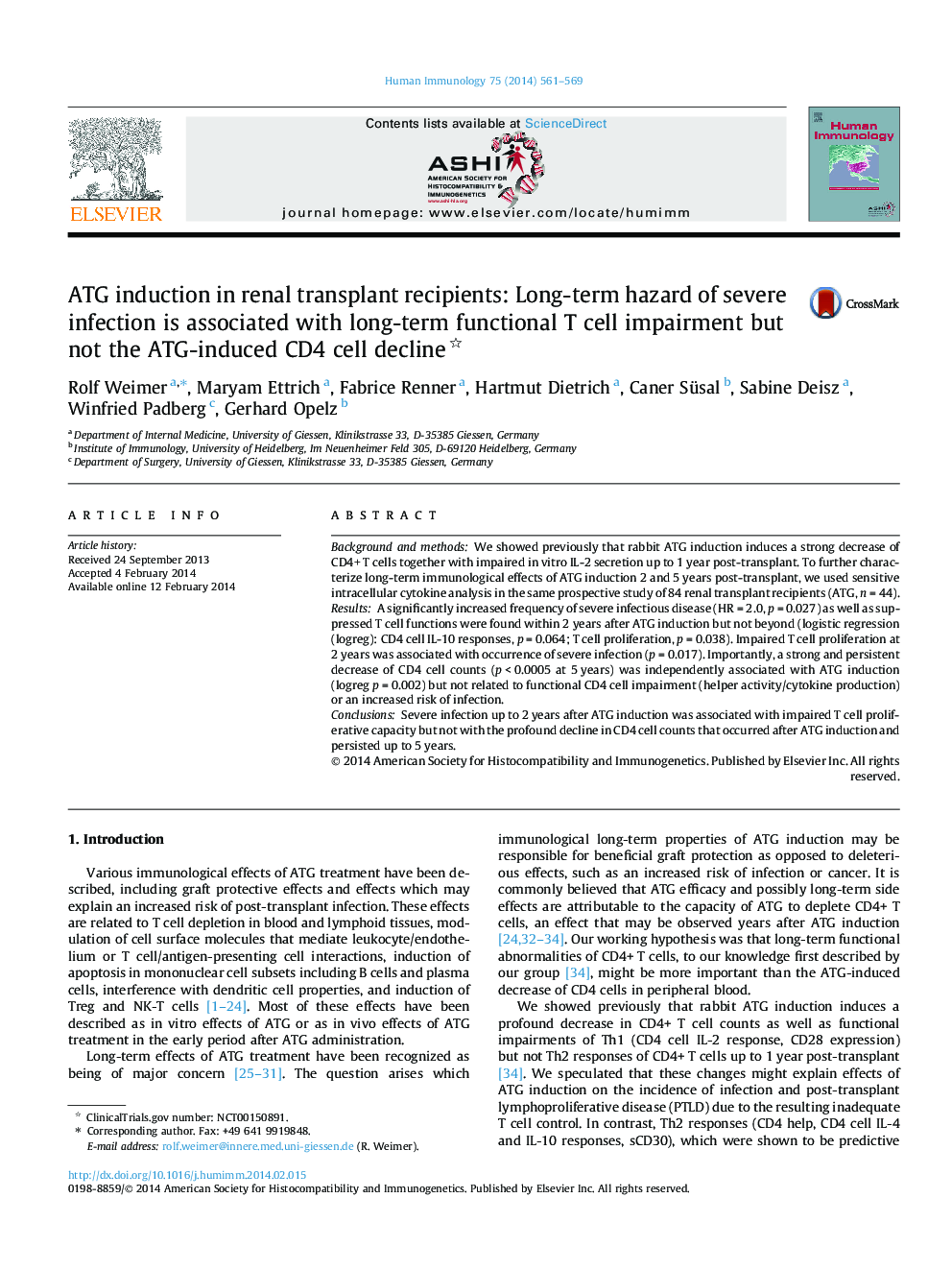| Article ID | Journal | Published Year | Pages | File Type |
|---|---|---|---|---|
| 3349618 | Human Immunology | 2014 | 9 Pages |
Background and methodsWe showed previously that rabbit ATG induction induces a strong decrease of CD4+ T cells together with impaired in vitro IL-2 secretion up to 1 year post-transplant. To further characterize long-term immunological effects of ATG induction 2 and 5 years post-transplant, we used sensitive intracellular cytokine analysis in the same prospective study of 84 renal transplant recipients (ATG, n = 44).ResultsA significantly increased frequency of severe infectious disease (HR = 2.0, p = 0.027) as well as suppressed T cell functions were found within 2 years after ATG induction but not beyond (logistic regression (logreg): CD4 cell IL-10 responses, p = 0.064; T cell proliferation, p = 0.038). Impaired T cell proliferation at 2 years was associated with occurrence of severe infection (p = 0.017). Importantly, a strong and persistent decrease of CD4 cell counts (p < 0.0005 at 5 years) was independently associated with ATG induction (logreg p = 0.002) but not related to functional CD4 cell impairment (helper activity/cytokine production) or an increased risk of infection.ConclusionsSevere infection up to 2 years after ATG induction was associated with impaired T cell proliferative capacity but not with the profound decline in CD4 cell counts that occurred after ATG induction and persisted up to 5 years.
